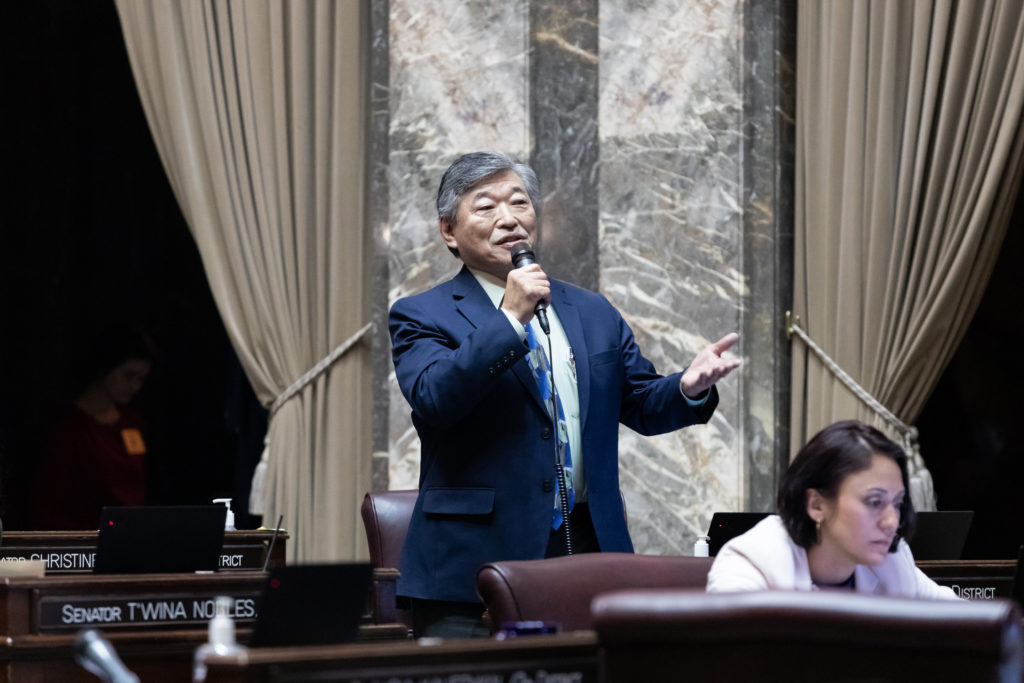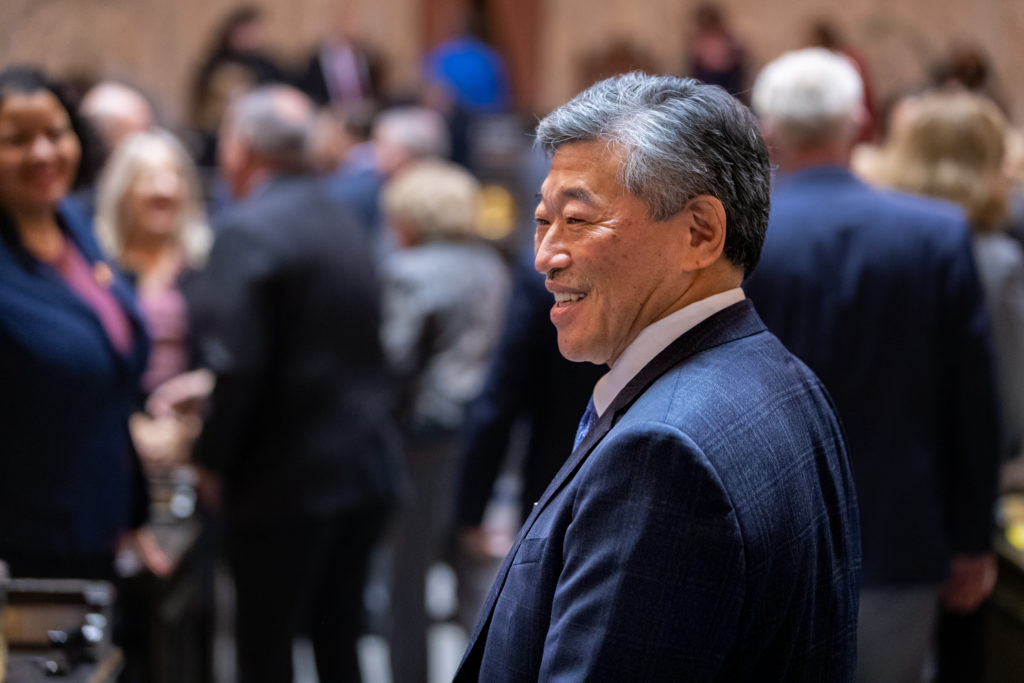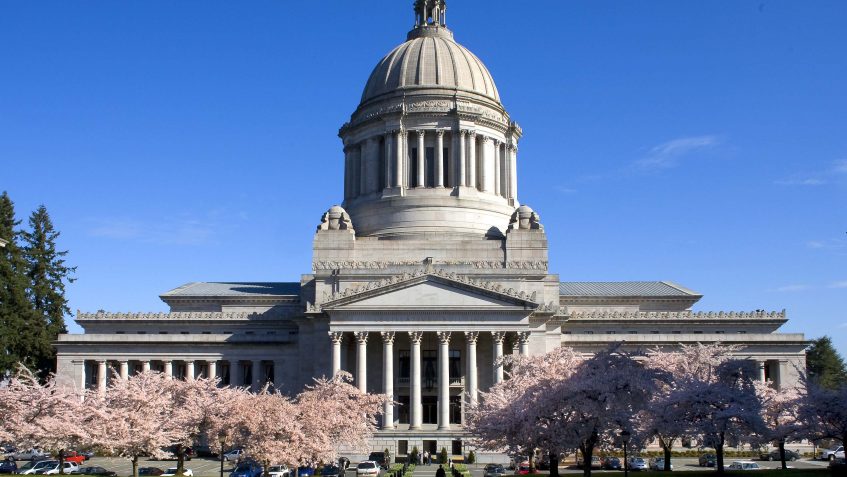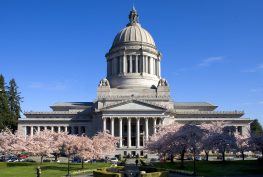Dear Neighbors,
I am pleased to bring you the latest updates and insights from our team here in Olympia. From the Legislature’s work on everything from healthcare to housing, from pet insurance to assault weapons to the State Supreme Court’s ruling on the capital gains tax, there’s been a lot going on here. Please scroll below for a quick update.
——————————————————————————————————————————
A needed update to our state’s antiquated tax code
On March 24th, the Washington State Supreme Court upheld the constitutionality of our state’s capital gains tax. The capital gains tax is focused on the profit earned from the sale of stocks, bonds, and other financial assets with more than $250,000,000 a year, and only impacts about 53 of the wealthiest people in our legislative district. This group of wealthiest taxpayers only pays about 1% to 2% of their income in taxes, as opposed to regular working folk who pay up to 17% and more of their income in taxes.
This type of narrowly crafted revenue source can be a means of building a more equitable revenue system while also promoting economic equity overall. Capital gains revenue is earmarked for early learning and education – major priorities for the state. By helping meet educational needs, that revenue will allow the state general fund to address the increasing needs for essential services like healthcare, homelessness, seniors, unemployable folk with physical or mental disabilities, etc. A capital gains tax can also help to stabilize the economy by disincentivizing market speculation and excessive risk-taking as it creates a disincentive for investors to engage in short-term, high-risk trading strategies.
It’s common knowledge that Washington state has the most regressive tax structure in the country, so the capital gains tax is a huge win and step in the right direction for those of us who have been fighting to create a more fair and just tax system for working families and struggling families. This is a big win that working Washingtonians have long needed.
Read more here:
https://www.thenewstribune.com/opinion/article273580195.html#storylink=cpy
——————————————————————————————————————————
Video
Click here to watch my most recent video update. To see more of them, go to my website HERE.
——————————————————————————————————————————
Domestic Violence-Public Records Act bill
We’ve seen a rise in domestic violence incidents and it’s become clear that abusers find increasingly innovate ways to stalk and terrorize their victims. The Legislature does its best to protect survivors of domestic violence by enacting laws that provide greater protections. Such laws can include improving the effectiveness of restraining orders, stricter penalties for offenders, and increased funding for shelters and support services for survivors. HB 1533, adds another safeguard against a new innovative tactic used by abusers who submit public records requests to track down their victims or children. HB 1533 protects sensitive information like home addresses of survivors from public disclosure under the Public Records Act. By strengthening our unwavering support for survivors, we can help to prevent domestic violence and ensure that those who have experienced it receive the care and protections they need to heal and rebuild their lives. It’s important that we continue to work towards creating a safer and more just society for all.
 ——————————————————————————————————————————
——————————————————————————————————————————
Townhall
Thank you to everyone who attended our 11th District Town Hall! It was a great success and we couldn’t have done it without your support. We hope you had a wonderful time and gained valuable insight. Stay tuned for more exciting events in the future!
——————————————————————————————————————————
Budget negotiations
It is said that our budget is a moral document. We place hard earned tax dollars into the hands of our elected representatives to invest where our values are.
Budget negotiations between the Senate and House are critical in ensuring we are living up to our standard as your elected representatives and investing your tax dollars in a way that fits our values as a state. The state budget is perhaps the most powerful tool we have in addressing social and economic inequities, to promoting the well-being of all Washingtonians and building for our future. The budget funds education, workforce training, healthcare, infrastructure, social and human services and so much more, all of which help support the needs of our communities and build a solid foundation for our children to launch their futures from.
Negotiations require input from all 49 legislative districts around the state and across both sides of the aisle to ensure that funding decisions are made in a way that promotes equity, accountability, transparency and wisdom in how we decide to invest our limited resources. By working together through the budget process, we can build a stronger and more equitable future for all Washingtonians.
This year, the Senate created and passed our preferred biennial budget, then sent it over to the House for its consideration. The House creates their own budget and amends it onto the Senate bill. These two differing budget proposals are then negotiated by the House and Senate budget leads until an agreement is reached and a new document that encompasses both the House and the Senate’s best ideas is adopted by both chambers and makes it to the Governor’s office for its final review and the Governor’s signature. In the next budget cycle (2025-27), the House will lead first with its budget, but the process of negotiating to a final agreed to budget will be the same.
 ——————————————————————————————————————————
——————————————————————————————————————————
Hasegawa bills passed by the Senate are now in the House for their consideration
I am proud to have introduced several bills this legislative session aimed at improving the lives of Washingtonians. So much of what’s important to us as a state like universal healthcare, accountability of banks and financing systems, and fully funding Special Education are preempted by the federal government so I’ve sponsored several Joint Memorials to Congress asking them to address these issues.
Here’s a look at my bills which have been passed by the Senate and are in the House of Representatives for their consideration and final passage:
- SB 5268 – Addressing equity and efficiencies in public works procurement including modifying small works roster requirements. (This bill has been passed by the House, 97-0)
- SJM 8001 – Concerning a national infrastructure bank.
- SJM 8005 – Addressing “de-risking” by financial institutions.
- SJM 8006 – Requesting that the federal government create a universal health care program.
——————————————————————————————————————————
Conclusion
As always, I want to express my thanks to you for taking the time to read these newsletters and stay engaged with the democratic process. Your participation is critical to the health of our democracy and helps ensure that we are responsive to the needs of our communities. Whether you attend town hall meetings, write letters to myself and other elected representatives, meet with me personally, or simply stay informed about the issues facing our state, your engagement is essential in shaping policy and creating a more equitable and just state for ourselves and our children.
Thank you,
-Bob Hasegawa


